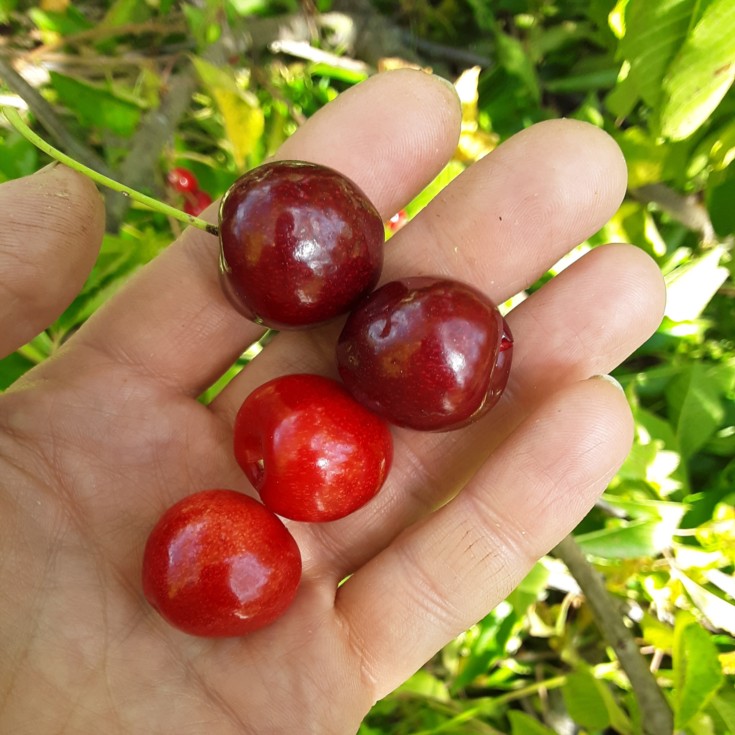| |
|
Entry Date
|
Nick Name
|
Location
|
|
Tuesday, July 02, 2024
|

|
Little Ketchup
|
Grittyville, WA
|
 |
Entry 107 of 265 |
 |
|
|
|
Some good sized cherries despite the cool wet spring.
The first education we are given about garden plants is just water, sun, and dirt. Then we learn some finer details, like that some plants like a higher ph or a lower ph, the temperature they like, etc. But lately I think there's a third level. Which is that the reason beans, for example, like a higher ph is that molybdenum is something they really value. Maybe potatoes value the other micronutrients like manganese above all else, so they "like a low ph." What I'm reading now is that scab... is maybe not directly caused by high ph really caused by low manganese. Manganese will be lower at a high ph so there is a correlation but its not causation. Potatoes might do fine in a high ph soil if they had access to micronutrients. Similarly, beans might to great in a low ph soil as long as they have the level of molybdenum they want.
Think about the cost of spreading tons of calcium carbonate onto a field vs the cost of spraying a few ounces of chelated micronutrients, or maybe a seed coating that had a slow release, specific micronutrient. The third level of understanding is where the possibilities really open up. And unlike other technologies, I dont see how this technology can be misused...
Going really far out here, it even presents a solution to global CO2 levels (which may or may not be a problem... the kneejerk "change is bad" reaction isnt going to win that debate) because then you arent releasing carbon from calcium carbonate. The point is, that that while other knowledge seems only to used to enslave us, this knowledge would lead to technologies that would offer us choices. Having choices is a prerequisite for making good choices. We tend to emphasize the later, not the former, to the point where its almost comical or destructive.
|
|
|



